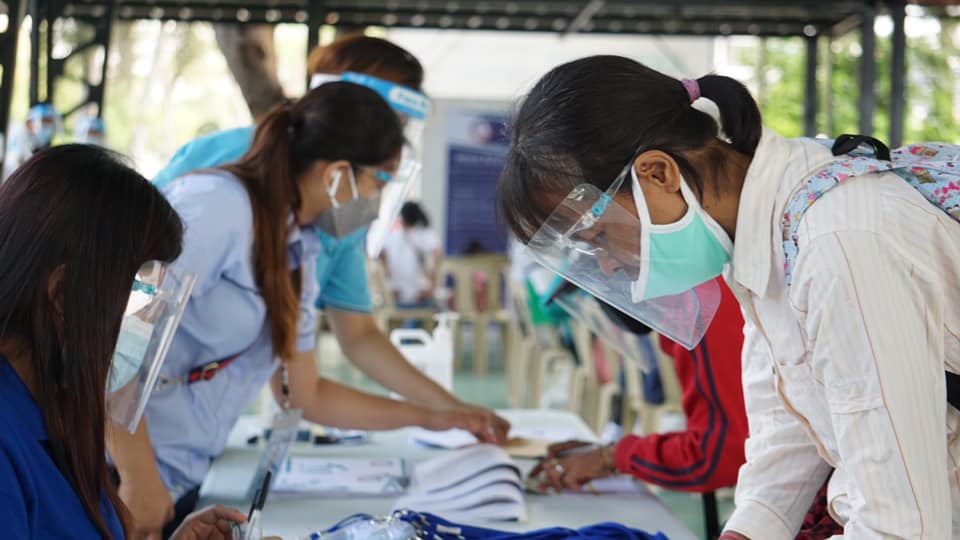News
PRRD urged to certify bill boosting ‘Balik Probinsya’ as urgent

MANILA – On the eve of Labor Day, a lawmaker on Friday appealed to President Rodrigo Duterte to certify as urgent the measure that would provide incentives to boost the Balik Probinsya, Bagong Pagasa (BP2) program as a way to generate more investments and jobs in the countryside.
Camarines Sur Rep. Luis Raymund Villafuerte said House Bill No. 6970, which sets up a national action plan (NSP) for the President’s BP2 program, proposes a menu of incentives to entice investors to relocate or do business in the regions that would accelerate economic recovery from the pandemic and help reverse the decades-old problem on urban congestion.
Villafuerte said the presidential endorsement of HB 6970 will complement the three investor-friendly bills — the Foreign Investments Act (FIA), Public Service Act (PSA), and the Retail Trade Liberalization Act (RTLA)–that were endorsed by the President for urgent congressional approval.
“The approval of these four measures will have the effect of funneling business capital into cities and municipalities outside the National Capital Region (NCR) and its adjacent provinces where economic activity and investments have been concentrated for decades,” he said.
Villafuerte said HB 6970 will fast-track the implementation of the President’s BP2 program because it proposes township revitalization programs nationwide in an effort to finally decongest Metro Manila and create more jobs and self-employment opportunities in rural communities amid the coronavirus pandemic.
He said the bill banks on public investments and incentives as the “linchpin of a two-pronged approach” to encourage people who have migrated to the heavily congested NCR to return to their home provinces, and for those who have opted to stay put in their cities or municipalities to remain there.
It also provides for a comprehensive, multi-sectoral planning and a mix of top-down and bottom-up policy interventions that will channel public investment and create incentives for growth in the countryside by encouraging businesses to relocate or expand to rural areas.
The bill, he said, aims to do this by offering a “slew of government come-ons” such as tax breaks; incentives for relocation and creation of new jobs; and low-interest loans and financial aid for investors who will engage in rural industrialization.
With HB 6970, Villafuerte is banking on public investments and incentives as the linchpin of a two-pronged approach to encourage people who have migrated to the heavily congested NCR to return to their home provinces, and for those who have opted to stay put in their cities or municipalities to remain there instead of relocating to Metro Manila in search of jobs or better livelihood opportunities.
HB 6970 provides for “comprehensive, multi-sectoral planning and a mix of top-down and bottom-up policy interventions that will channel public investment and create incentives for growth in the countryside” by encouraging businesses to relocate or expand to rural areas.
Honor healthcare workers
Meanwhile, Manila Rep. Manny Lopez, had a different take in celebrating the upcoming Labor Day, as he called on the public to honor and express gratitude to all healthcare workers, including frontline barangay health workers, who are leading the fight against the coronavirus pandemic.
Lopez said the government must ensure that the provision of all the commitments, allowances, and benefits for healthcare workers, as mandated by law, is followed.
Lopez has filed House Resolution No. 1704 which calls for an investigation, in aid of legislation, on the compliance of public and private entities to provide health workers with all the benefits as mandated by law.
“The healthcare service has long been noted to be an honorable profession, but in the light of this pandemic we should also highlight and underscore its value and importance,” he said.
According to Lopez, there were 7,629 claims received by the Department of Health in the National Capital Region from health workers who have contracted Covid-19 and only 3,727 of these claims were paid based on April 28 data.
Out of the more than 7,000 claims, 1,814 claims were said to have not qualified, 796 for evaluation, 99 for verification, and 250 considered to have incomplete documents.
“In light of this recent surge of the virus, our healthcare services have been taxed beyond their limit. Honoring our commitments and providing benefits to them is the least we can do. And that is why we must ensure it,” he said. “We call on all our government agencies and the private sector to follow through on these obligations. This is our moral duty.”





















